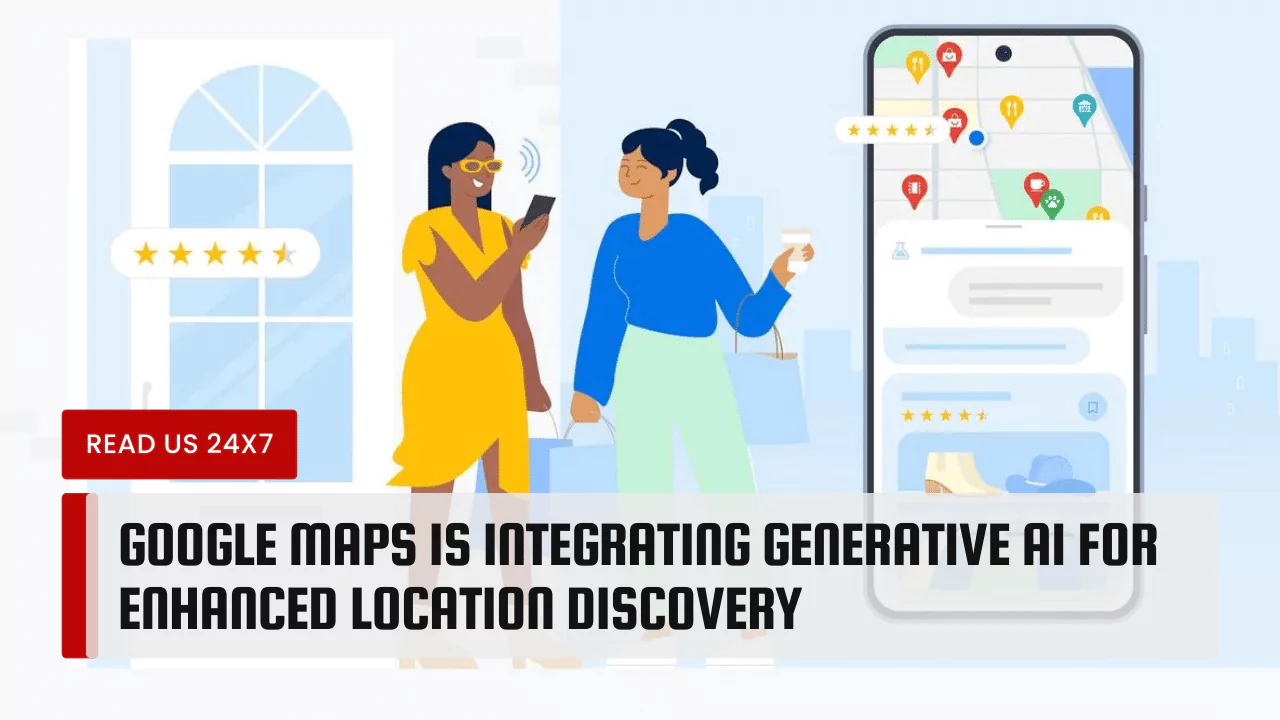Google Maps is introducing a new feature that uses generative AI to help users discover new places based on their preferences and needs. The feature, which is currently being tested by select Local Guides in the U.S., allows users to have a conversational interaction with Maps and get personalized recommendations for places that match their queries.
This article will explain how Google Maps is using generative AI to improve location discovery, and what benefits and features it offers to users.
The Use of Generative AI in Google Maps
Generative AI is a branch of artificial intelligence that can create new content or data from existing data, such as text, images, or audio. Google Maps is using generative AI to analyze its vast database of over 250 million locations and contributions from over 300 million Local Guides and generate suggestions for places that users might be interested in.
Experimenting with Large Language Models
One of the key components of Google Maps’ generative AI feature is the use of large language models (LLMs), which are neural networks that can process natural language and generate coherent text. Google Maps is using LLMs to understand the context and intent of users’ queries and to produce relevant and diverse responses.
Enhancing the Discovery of Places
Google Maps’ generative AI feature is designed to enhance the discovery of places by providing more nuanced and tailored suggestions than the traditional search functionality. For example, suppose a user wants to find cool thrift shops in San Francisco. In that case, they can search “places with a vintage vibe in SF”, and Maps will generate shopping recommendations organized by categories, as well as photo carousels and review summaries that highlight why a place could be a good fit.
Conversational Searching
Google Maps’ generative AI functionality facilitates a more interactive searching experience, allowing users to pose more inquiries or enhance their queries in response to the ideas they receive. When a user searches for antique sites and then asks “How about lunch?”, Maps will consider their previous interest and suggest restaurants that align with their criteria, such as a traditional diner. The tool is capable of processing intricate or specialized searches and providing recommendations tailored to even the most particular preferences or interests.
Benefits and Features of Generative AI in Google Maps
The integration of generative AI in Google Maps offers several benefits and features to users, such as:
Improved User Experience
By using generative AI, Google Maps can provide a more engaging and satisfying user experience, as users can explore new places with ease and convenience. Users can also save places to revisit later, or easily share them with friends.
Natural Language-based Searching
By using LLMs, Google Maps can support natural language-based searching, where users can express their queries in a more human-like way, rather than using keywords or filters. This can make searching more intuitive and natural, and also allow users to discover places that they might not have thought of before.
Personalized Recommendations
By using generative AI, Google Maps can offer personalized recommendations that match users’ preferences and needs, rather than generic or popular results. This can help users find places that suit their mood, occasion, or budget, and also discover hidden gems or local favorites.
Potential for Increased Efficiency
By using generative AI, Google Maps can potentially increase its efficiency and accuracy, as it can leverage its massive data and insights from its community to generate high-quality suggestions. This can also reduce the need for manual curation or editing, and enable faster and more frequent updates.


